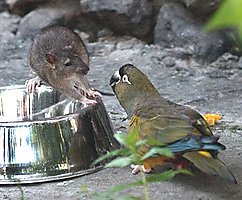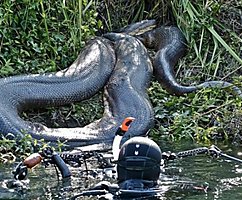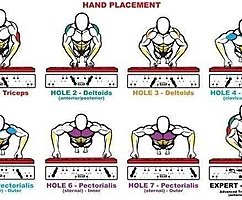Biologists have shown that our "older" was the ancestor of two-millimeter sea worm
 Bashny.Net
Bashny.Net

Scientists from the UK and Canada in a hurry to expand the horizons of those who believe that man evolved from apes. Biologists have shown that our "older" was the ancestor of two-millimeter marine worms that live on the planet 500 million years ago, reports Zee News. Ancient human ancestor called Pikaia gracilens or just pikaia. Recent research scientists from the University of Cambridge put an end to the perennial debate biologists and paleontologists about what class of living creatures pikaia include: invertebrates and chordates. The first fossils of ancient animal, like a worm, were discovered by the American scientist Charles Walcott in 1911 in British Columbia (Canada). Pikaia have no teeth and eyes, despite the presence of the head and gills of tiny and small two feelers, which are believed paleontologists marine animal used for production of nutrients. After studying the remains of ancient creatures, scientists first carried him to the polychaetes. Only in the mid-1970s a group of Cambridge biologists have suggested that P. gracilens may relate to the chord. That is a vertebrate. Less than half a century, these assumptions could be confirmed. To do this, the researchers studied the tiniest details of the structure pikaia with the latest electron microscopes. The animal is able to detect small hryaschik or chord, performs the role of the spine, and even the remains of the circulatory system. Biologists believe that pikaia chord is the oldest organisms on Earth, and therefore, from the tiny sea creature came all vertebrate creatures on the planet, including birds, fish, amphibians, mammals and ... people. It is not clear why in the course of evolution pikaia began to develop the spine. Paleontologists believe that the chord is essentially needed then to quickly escape from larger predators. See also: Why are the monkeys do not become a man? 26 facts about the human body. Seven rules that will live up to 100 years.
Source: www.vesti.ru/doc.html?id=733908&cid=2161
Tags
See also
10 reasons our universe a virtual reality
What is our life: why do economists study game theory
Chapaev and the Nazis
Ten mistakes of nature.
Brin acknowledged that his work on Google+ was a mistake
Who said that the world is a bad place? Look, these people have committed for the benefit of others!
Everything has a reason, know why you have something hurts. Unpredictable explanation!
Secrets "owls", which does not know the "larks"
As Charles Darwin contributed to the development of the theory of the existence of extraterrestrials

















